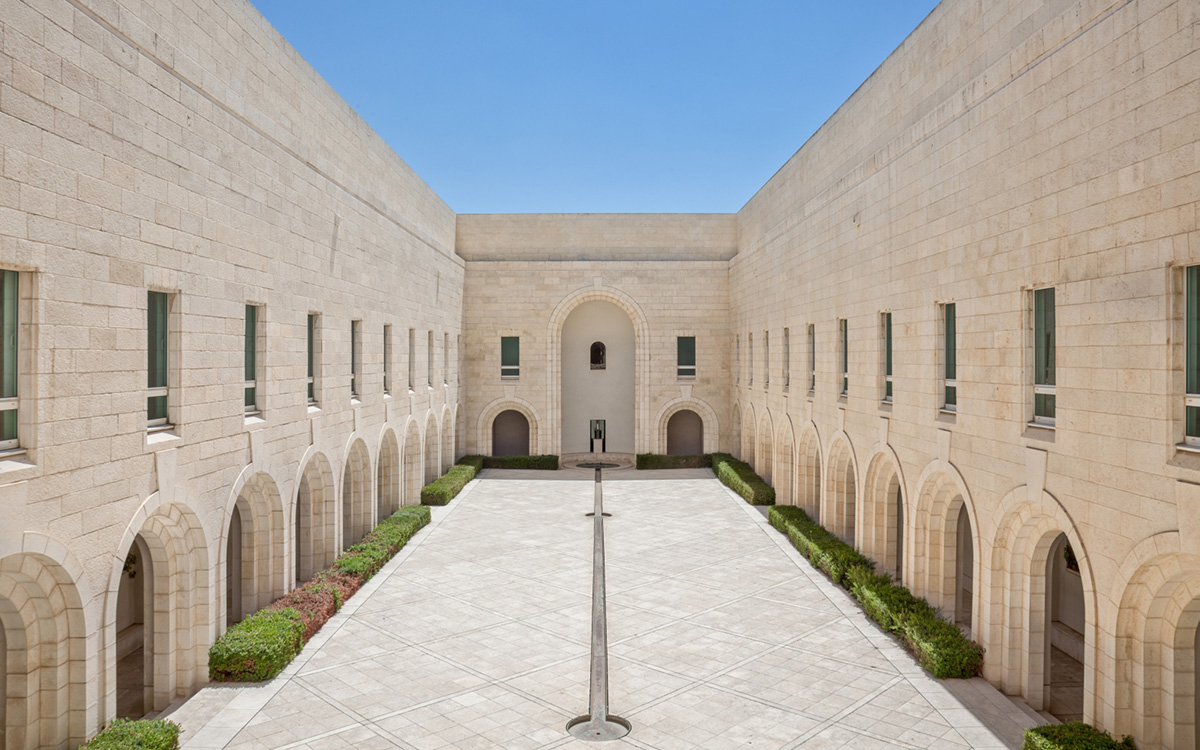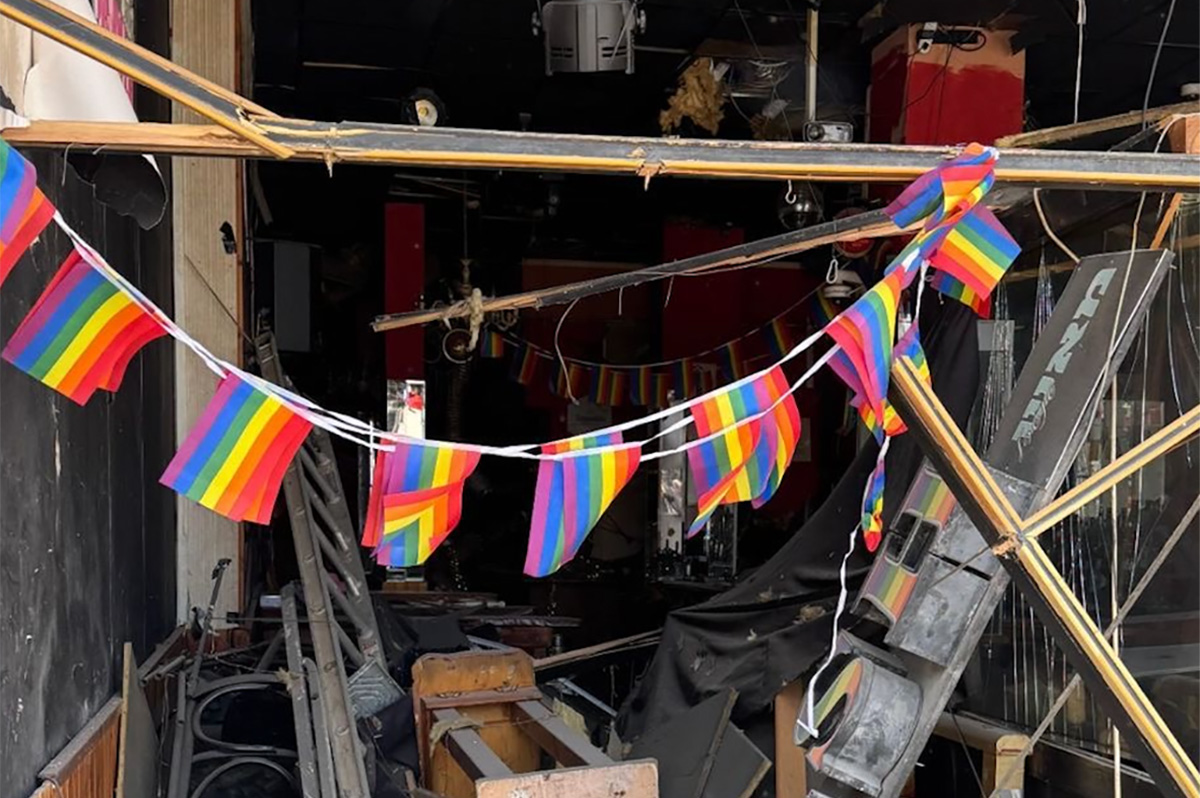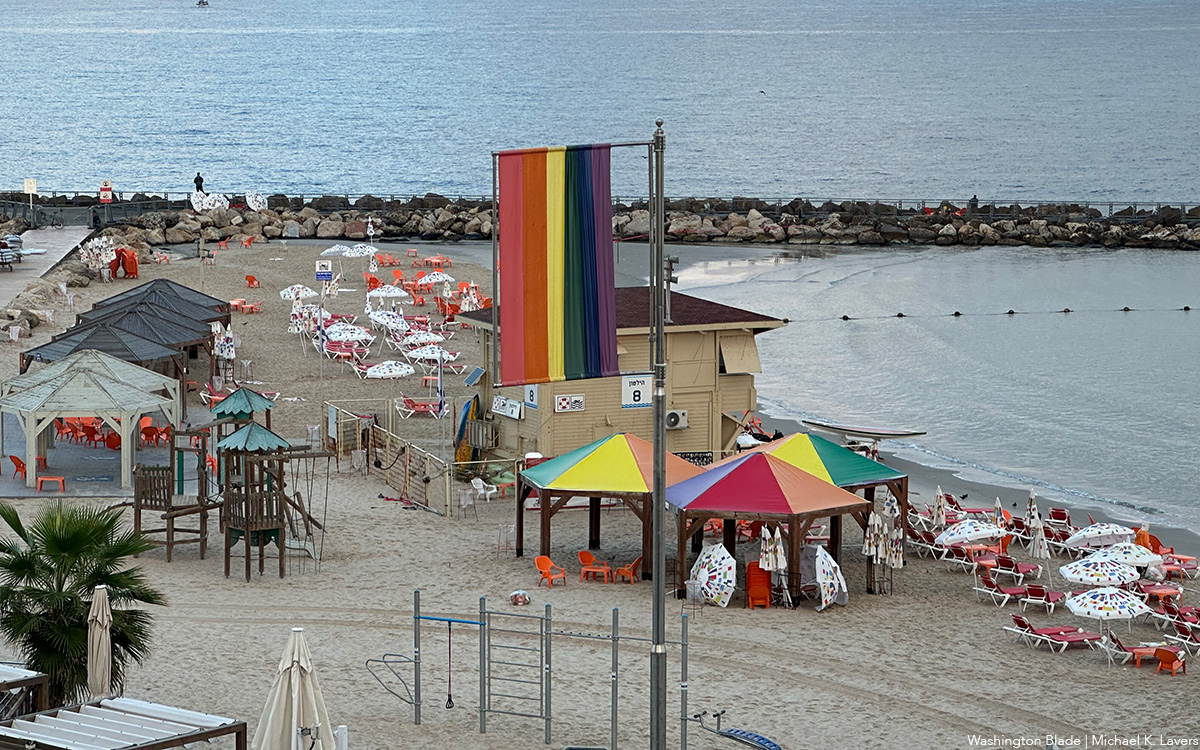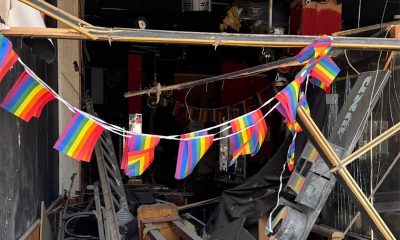Middle East
Israeli Supreme Court rules LGBTQ couples can adopt children
Decision caps off years-long effort

BY ANITA GOULD | Six years since the state pledged to change adoption law so that discrimination against same-sex couples would be eliminated, the Israeli Supreme Court on Thursday unanimously ruled that existing law allows LGBTQ couples to adopt.
The judges issued their decision as part of a discussion of the petition that two LGBTQ couples submitted in 2021 with the Reform Center, the Aguda, Jerusalem Open House for Pride and Tolerance and the Proud Fathers Association.
The petition dealt with the adoption law that states “there is no adoption except by a man and his wife together,” thus discriminating against LGBTQ couples who can only adopt children in which heterosexual couples are not interested. These are usually older children or children with special needs, and it is required that the term “man and his wife” in the adoption law be interpreted to include spouses of the same sex.
“Six decades have passed since the box ‘man and his wife together’ was written in the adoption law,” wrote the judges in their decision, “Since then, we have learned to know that a stable and loving family unit, which can form a solid foundation for raising a healthy child, can be a family unit of a man and a woman, of a woman and a woman and of each person — provided that the best interests of the child are preserved. This insight is the focus of the interpretation given by us today to the provision of Section 3 of the law. In this interpretive ruling, which brings same-sex couples through the ‘main door’ of non-adoption, we are walking in a groove that has already been plowed in rulings in the field of family law and in other areas, which over the years have recognized the existence of same-sex relationships, the parenting of same-sex couples and their right for equality. Our ruling even continues an existing interpretive axis that refers to the adoption law, an axis that expands the range of potential efforts beyond the limits of the traditional family model of ‘man and woman,’ in order to fulfill the purpose of the law. This interpretation is therefore required by the changes of the times, the principle of the best interests of the child, human dignity and the principle of equality.”
More than seven years of struggle
The issue of discrimination in the adoption law was raised for the first time in front of the Supreme Court in the first petition submitted in 2016. The State then sought to amend the adoption law within a year and a half so that discrimination against LGBTQ couples would be eliminated. In 2019, a legal memorandum was published on the subject, but it was not published.
After the previous government stated there was no political possibility to amend legislation but they had no objection to the petition being scheduled for hearing before the High Court of Justice, a hearing on the petition was scheduled for the summer of 2022, but it was canceled in light of the fall of the government and the elections held at the end of 2022.
The first hearing on the petition was held in August.
According to the State’s position submitted in advance of the hearing, the best way is to wait for the amendment of legislation, but because the justice minister believes that there is no political feasibility to amend legislation and due to the welfare minister’s opposition, who claimed that this “adds complexities and difficulties to the child” contrary to the positions of the professionals in his office, there is a legal anchor that will make it possible to receive the expansive interpretation that the petitioners request. The State, as well as the petitioners in this case, insists that this is also required due to the principle of the best interests of the child — to provide a home for the child regardless of the sexual orientation of his parents.
“This is a ray of light in a dark time,” said petitioners Shahar Gloverman and Shay Gortler. “For more than eight years we have been waiting in line for adoption. The High Court of Justice will no longer give us back these years or the consequences of the long wait, but we are happy that the door of adoption has been opened for the next LGBT couples.”
“During the difficult times we are in, we welcome small moments of kindness that inspire hope that we will rise from the ruins for a better, more just and united future,” added petitioners Tzafir Gideon and Ido Ziv, “We thank the court for its ruling that put an end to the discriminatory distinction between us as parents, which has no understanding And between the welfare of the child, one thing and another. Just as there are no second-class children, there are also no second-class parents. Love is love is love.”
A ruling that erases another expression of institutional discrimination
“For over seven years we have been fighting for LGBTQ couples so that they can realize their dream of becoming a family through adoption,” said attorney Ricky Shapira Rosenberg of the Reform Center for Religion and State who represented the petitioners. “We welcome the verdict, which accepted the position The petitioners that there should be no discrimination between same-sex couples and other couples for the purpose of adoption. The court ruled that the law stating that ‘there is no adoption except by a man and a woman’ should be interpreted as applying to couples of the same sex since the purpose of the adoption law is to ensure the welfare of the child, and in this regard there is no difference between LGBT families and heterosexual families. Once again it has been proven that the one who protects human rights in general and of the Lahtav community in particular is the Supreme Court.”
Aguda CEO Ran Shalhavi said “this is a historic victory and a groundbreaking achievement that gives a little light and hope in these difficult days. For years we have been fighting and fighting to be seen as equal in adopting children and starting a family in Israel, while Israeli governments for generations discriminated and incited against us just because of who we are, the Supreme Court once again proves its importance in protecting our rights. This day is the answer to homophobia, hatred, darkness and welfare ministers who for years denied our parentage, leaving us second-class citizens. The war only emphasized how disconnected inequality is from life itself. The time has come for equal rights in primary legislation in the Knesset: in parenting, in security, in marriage, without incitement and discrimination, and we will continue to march proudly until we get there.”
Jerusalem Open House for Pride and Tolerance stated “we welcome the verdict that erases yet another expression of long-standing institutional discrimination against the gay community, and congratulate Shai and Shahar and Tzafir and Ado that after years of legal struggle they will be able to expand their families. A big thank you to attorney Ricky Shapira and the Reform Center for Religion and State who led the petition. These are complex and difficult days for Israeli society. We demand that even at this time the political echelon does not stop promoting the rights of the gay community. Just as the battlefield does not distinguish between us, there is no justification for the rulebook to distinguish between us. We all hope that we will know more quiet, loving, and equal days.”
Israel
Activist recalls experience in Tel Aviv after Israel-Iran war began
Marty Rouse was part of Jewish Federations of North America Pride mission

A long-time activist who was in Israel last month when its war with Iran began has returned to D.C.
Marty Rouse traveled to Israel on June 6 with the Jewish Federations of North America. The 5-day mission ended the night before the annual Tel Aviv Pride parade was scheduled to take place.
Mission participants met with Israeli President Isaac Herzog and several LGBTQ activists in Tel Aviv and Jerusalem. They visited the Western Wall, the Nova Music Festival site, and Nir Oz, a kibbutz in southern Israel that is less than a mile from the country’s border with the Gaza Strip. Mission participants also visited Sderot, a city that is roughly a mile from the Hamas-controlled enclave, a veterans rehabilitation facility, a new LGBTQ health center and the Aguda: The Association for LGBTQ Equality in Israel in Tel Aviv.
Hamas militants on Oct. 7, 2023, killed upwards of 360 partygoers and kidnapped dozens more at the music festival that was taking place at a campground near Re’im, a kibbutz that is roughly 10 miles southwest of Nir Oz. The militants killed or took hostage nearly a quarter of Nir Oz’s residents. They also took control of Sderot’s police station.

Tel Aviv Deputy Mayor Chen Arieli spoke at the mission’s closing party that took place at the Sheraton Grand, a hotel that overlooks Tel Aviv’s beachfront, on June 12.
Rouse and other mission participants planned to stay in Tel Aviv for the Pride parade, which was scheduled to take place the following day. He and Gordie Nathan, another mission participant who lives in Palm Springs, Calif., had checked into a nearby hotel that was less expensive.
“We said our farewells,” recalled Rouse when he spoke with the Washington Blade in D.C. on June 24. “We went to our hotels, and we get the warning, and then all hell broke loose.”
Israel early on June 13 launched airstrikes against Iran that targeted the country’s nuclear and military facilities.
Rouse said mission organizers told him and other participants who remained in Tel Aviv to meet at the Sheraton Grand for breakfast and dinner — Israel’s airspace was closed in anticipation of an Iranian counterattack, and authorities cancelled the Pride parade.
He said he went to bomb shelters at least twice a night for three nights.
Israel’s Home Front Command during the war typically issued warnings about 10 minutes ahead of an anticipated Iranian missile attack. Sirens then sounded 90 seconds before an expected strike.
Rouse and Nathan walked to the Sheraton Grand on June 13 when the Home Front Command issued a 10-minute warning. They reached the hotel in a couple of minutes, and staff directed them to the bomb shelter.
“You know to walk slowly, everything’s fine,” recalled Rouse. “You get 10 minutes, so everything was fine when the alarm goes off.”
Rouse described the Sheraton Grand shelter as “well lit” with WiFi, a television, and air conditioning. He was watching an Israeli television station’s live coverage of the Iranian missile attack when he saw one hit an apartment building in the Tel Aviv suburb of Ramat Gan.
A 74-year-old woman died and her boyfriend was seriously injured.
“I go over to look at the TV, just to watch,” recalled Rouse. “All of a sudden, you watch, and you see one bomb go and land and explode in Tel Aviv on TV. It landed and blew up.”
“I was like, okay, this is real, and so that was scary,” he added.
Rouse said the bomb shelter in the hotel where he and Nathan were staying after the mission ended was far less comfortable.
“It was dark. It was humid. It was hot. It was very uncomfortable,” said Rouse. “You really felt alone.”

Rouse and nearly everyone else on the mission who were in Tel Aviv when the war began left Israel on June 15. They boarded buses that took them to the Jordanian capital of Amman, which is a roughly 2 1/2-hour drive from Tel Aviv through the West Bank.
Rouse described the trip as “like a field trip” until they drove across the Jordan River and arrived at the Jordanian border crossing.
“You walk into this room, and instead of being in a well air-conditioned airport, you’re in this hot, humid, small place in the middle of the desert, packed with people, and those big, large, loud fans and pictures of military people on the walls,” he said. “It was almost like a Casablanca kind of feeling.”
Rouse said Jordanian authorities brought mission participants through customs in groups of 10. A Jewish Federations of North America liaison from Amman who previously worked as a tour guide for A Wider Bridge — a group that “advocates for justice, counters LGBTQphobia, and fights antisemitism and other forms of hatred” — went “behind closed doors” to ensure everyone was able to enter the country.
“It took a really long time,” Rouse told the Blade.

Mission participants arrived in Amman a short time later. They checked into their hotel and then had dinner at a restaurant.
“Now we feel like we’re safe and we’re in Amman,” recalled Rouse. “We’re sitting outside having a beautiful dinner.”
Iranian missiles passed over Amman shortly after Rouse and the other mission participants had begun to eat their dessert. They went inside the restaurant, and waited a few minutes before they boarded busses that brought them back to their hotel.
“No one was openly freaking out, which I was surprised by,” said Rouse.
The group was scheduled to fly from Amman to Cairo at 11 p.m. local time (4 p.m. ET) on June 16. They visited Jerash, an ancient city north of Amman, before their flight left Jordan.
“[The Jerash trip] actually took our minds off of everything,” said Rouse.
A Jewish Federations of North America contact met Rouse and the other mission participants at Cairo’s airport once their flight landed. Rouse arrived at JFK Airport in New York on June 17.
Trump-announced ceasefire ended 12-day war
President Donald Trump on June 23 announced a ceasefire that ended the 12-day war.
The U.S. three days earlier launched airstrikes that struck three Iranian nuclear sites. The ceasefire took effect hours after Iran launched missiles at a U.S. military base in Qatar.
Iran said the war killed more than 900 people in the country.
The Associated Press notes Iranian missiles killed 28 people in Israel. One of them destroyed Tel Aviv’s last gay bar on June 16.
The war took place less than two years after Oct. 7.
The Israeli government says Hamas militants on Oct. 7, 2023, killed roughly 1,200 people on that day when it launched its surprise attack on the country. The militants also kidnapped more than 200 people.
The Hamas-controlled Gaza Health Ministry says Israeli forces have killed nearly 55,000 people in the enclave since Oct. 7. Karim Khan, the International Criminal Court’s chief prosecutor, has said Israeli Prime Minister Benjamin Netanyahu and former Hamas leader Yahya Sinwar, who the IDF killed last October, are among those who have committed war crimes and crimes against humanity in Gaza and Israel.

Rouse upon his return to the U.S. said he “was never as aware of the comfort of another human being than I was during that time.” Rouse affectionately called Nathan his “bomb shelter boyfriend” and even questioned the way he reacted to the missile alerts.
“He’s sitting on the edge of the bed and he goes, okay, I’m going to put on my socks and my shoes, and I say, really? You’re going to put on your socks,” Rouse told the Blade. “The fact that I was nervous, that putting on socks might have changed the direction of our lives, to me was like I can’t believe I said that to him.”
Rouse quickly added Nathan helped him remain calm.
“If I was by myself, those nights would have been long enough,” said Rouse. “It’s a totally different feeling to be with another human that you know than to be by yourself.”

Rouse also praised the Jewish Federations of North America.
“JFNA really sprung into action and started to figure out all options to get us all safely home,” said Rouse. “It was all about logistics. Staff worked around the clock identifying and then mobilizing to get us back to the states. It was a great team effort and I know I speak for everyone in expressing our deep appreciation for their dedication to getting us safely home.”
Israel
Iranian missile destroys Tel Aviv’s last gay bar
Mash Central is a few blocks from US Embassy

An Iranian missile on June 16 destroyed a gay bar in Tel Aviv, Israel.
The missile struck Mash Central, which is a few blocks from the U.S. Embassy on Allenby Street, and surrounding buildings. Israeli sources confirmed to the Washington Blade that Mash Central was the only gay-specific bar in Tel Aviv.
“Iran’s missile strike yesterday destroyed Tel Aviv’s only dedicated gay bar,” reads one Instagram post with pictures from inside the bar. “This place provided a safe space for minorities to express themselves — now it’s trashed.”
Mash Central describes itself as Tel Aviv’s “last gay bar standing,” even though the city promotes itself as one of the world’s most LGBTQ-friendly cities.
Israel on June 13 launched airstrikes against Iran that targeted the country’s nuclear and military facilities. Iran since the war began has launched hundreds of missiles towards Israel.
Tel Aviv’s Pride parade was scheduled to take place on June 13, but authorities cancelled it. Caitlyn Jenner, who was to have been the event’s guest of honor, is among those who were stranded in Israel after the war began.
Israel
Tel Aviv Pride parade cancelled after Israel attacks Iran
Caitlyn Jenner was to have been guest of honor

Tel Aviv authorities on Friday cancelled the city’s Pride parade after Israel launched airstrikes against Iran.
The Associated Press notes the Israeli airstrikes targeted nuclear and military facilities in Iran. Reports indicate the airstrikes killed two top nuclear scientists and the leader of Iran’s Revolutionary Guard.
Iran in response to the airstrikes launched more than 100 drones towards Israel. The Israel Defense Forces said it intercepted them.
The Tel Aviv Pride parade had been scheduled to take place on Friday. Caitlyn Jenner was to have been the event’s guest of honor.
Authorities, in consultation with local LGBTQ activists, last year cancelled the Tel Aviv Pride parade out of respect for the hostages who remained in the Gaza Strip after Oct. 7. Jerusalem’s annual Pride parade took place on June 5.




















